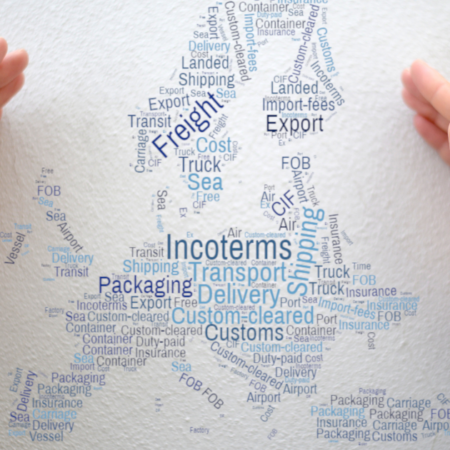Understanding Incoterms and EXW for International Shipping

International Commercial Terms, or Incoterms, are standardized rules used in global trade to clarify responsibilities between buyers and sellers during the shipment process. Developed by the International Chamber of Commerce (ICC), these terms define who is responsible for transportation, export and import duties, risk transfer, and insurance at various stages of the shipping journey. Incoterms are crucial for minimizing misunderstandings and ensuring smooth transactions, as they provide a clear framework that outlines obligations and reduces potential disputes between trading partners. Among the various Incoterms, EXW—short for “Ex Works”—is known for placing most of the responsibility and risk on the buyer.
Exploring EXW (Ex Works) Incoterm
EXW, or Ex Works, is one of the most straightforward Incoterms, transferring maximum responsibility to the buyer. In an EXW agreement, the seller’s primary obligation is to make the goods available for collection at a designated location, often their own warehouse, factory, or plant. From this point onward, the buyer assumes all responsibilities, including loading the goods onto a vehicle, handling all export documentation and customs clearance, and arranging transportation to the final destination. Essentially, the seller completes their role as soon as the goods are made available, while the buyer takes charge of the entire export and import process.
While EXW simplifies things for the seller, it demands significant expertise and planning from the buyer. Buyers must navigate the complexities of export regulations in the seller’s country, manage transport logistics, and ensure compliance with import procedures in their country. This makes EXW a less ideal for buyers new to international trade, as they may find the logistics challenging and encounter unexpected costs. For buyers who lack the necessary expertise, opting for a different term like FCA (Free Carrier) might be more practical, as it involves the seller in the initial stages of transportation.
Seller and Buyer Responsibilities Under EXW
Under an EXW arrangement, the seller’s obligations are minimal. They are responsible for ensuring that the goods are properly packaged for export and available for pickup at the agreed location. This could include providing documentation, such as commercial invoices and export packaging, but the seller does not manage loading or any subsequent transportation steps. Sometimes, a seller might assist in loading the goods onto the buyer’s transport vehicle, but this must be specifically outlined in the sales contract to avoid confusion.
For the buyer, the responsibilities are extensive. They must arrange for loading at the seller’s location, organize pre-carriage transport to the port of export, manage all export formalities, and pay relevant taxes or duties. Additionally, the buyer covers the costs of freight, insurance, and terminal charges at the destination port, along with the delivery and unloading process at the final destination. This comprehensive responsibility makes EXW a cost-effective option when buyers have established logistics capabilities or want greater control over shipping processes, but it can be risky for those without experience in export procedures.
When to Consider EXW for Your Shipments
EXW can be advantageous in specific situations. For instance, if a buyer plans to consolidate shipments from multiple suppliers in the seller’s country, EXW allows them to manage the export process under a single name, reducing complexity and cost. It can also be useful when buyers want to keep supplier details confidential by using a different exporter’s name on shipping documents. However, due to the high level of responsibility and the potential for unexpected challenges, buyers often work with a trusted logistics partner to manage the export process. A freight forwarder or logistics company can assist with coordination, ensuring that the buyer’s shipment proceeds smoothly from origin to destination.
Do you have questions about the best Incoterm for your shipping needs? Contact Besway International today, and our experts will help you choose the right shipping terms to optimize your supply chain and minimize risk.
To learn more about Ex-Works, check out Cargo Cafe—Bestway International’s newest biweekly LinkedIn webinar series!
Hosted by Jay Devers, President and Managing Partner of Bestway International, our first session will dive into Incoterms and what they mean for your business.
Whether you’re new to logistics or a seasoned pro, this is the perfect place to ask questions and get insights in a relaxed, friendly atmosphere.
Register to attend on October 30th at 11 AM. Don’t forget to come prepared with your questions—we can’t wait to chat with you!
